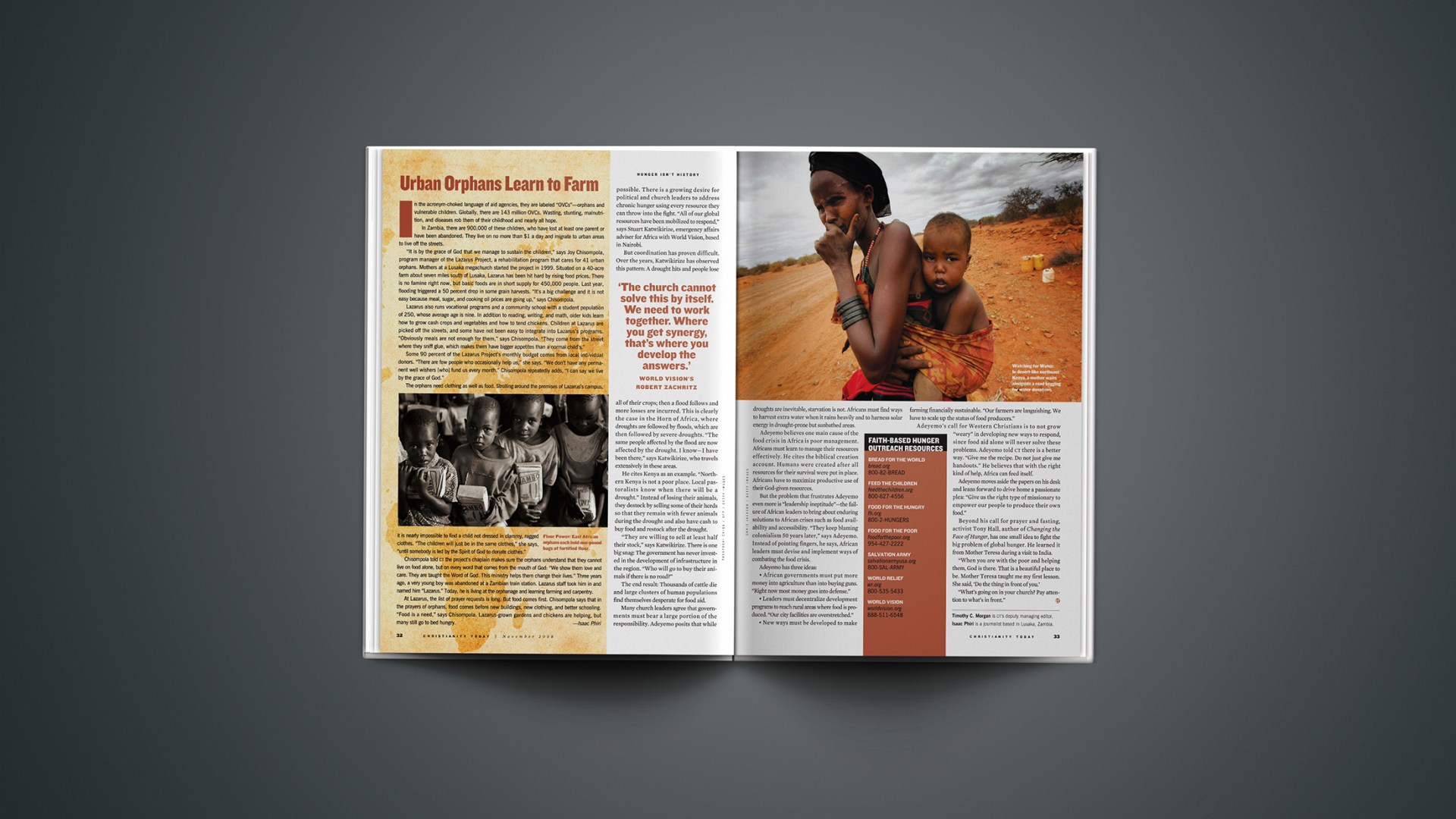In the acronym-choked language of aid agencies, they are labeled “OVCs”—orphans and vulnerable children. Globally, there are 143 million OVCs. Wasting, stunting, malnutrition, and diseases rob them of their childhood and nearly all hope.
In Zambia, there are 900,000 of these children, who have lost at least one parent or have been abandoned. They live on no more than $1 a day and migrate to urban areas to live off the streets.
“It is by the grace of God that we manage to sustain the children,” says Joy Chisompola, program manager of the Lazarus Project, a rehabilitation program that cares for 41 urban orphans. Mothers at a Lusaka megachurch started the project in 1999. Situated on a 40-acre farm about seven miles south of Lusaka, Lazarus has been hit hard by rising food prices. There is no famine right now, but basic foods are in short supply for 450,000 people. Last year, flooding triggered a 50 percent drop in some grain harvests. “It’s a big challenge and it is not easy because meal, sugar, and cooking oil prices are going up,” says Chisompola.
Lazarus also runs vocational programs and a community school with a student population of 250, whose average age is nine. In addition to reading, writing, and math, older kids learn how to grow cash crops and vegetables and how to tend chickens. Children at Lazarus are picked off the streets, and some have not been easy to integrate into Lazarus’s programs. “Obviously meals are not enough for them,” says Chisompola. “They come from the street where they sniff glue, which makes them have bigger appetites than a normal child’s.”
Some 90 percent of the Lazarus Project’s monthly budget comes from local individual donors. “There are few people who occasionally help us,” she says. “We don’t have any permanent well wishers [who] fund us every month.” Chisompola repeatedly adds, “I can say we live by the grace of God.”
The orphans need clothing as well as food. Strolling around the premises of Lazarus’s campus, it is nearly impossible to find a child not dressed in clammy, ragged clothes. “The children will just be in the same clothes,” she says, “until somebody is led by the Spirit of God to donate clothes.”
Chisompola told ct the project’s chaplain makes sure the orphans understand that they cannot live on food alone, but on every word that comes from the mouth of God: “We show them love and care. They are taught the Word of God. This ministry helps them change their lives.” Three years ago, a very young boy was abandoned at a Zambian train station. Lazarus staff took him in and named him “Lazarus.” Today, he is living at the orphanage and learning farming and carpentry.
At Lazarus, the list of prayer requests is long. But food comes first. Chisompola says that in the prayers of orphans, food comes before new buildings, new clothing, and better schooling. “Food is a need,” says Chisompola. Lazarus-grown gardens and chickens are helping, but many still go to bed hungry.
Copyright © 2008 Christianity Today. Click for reprint information.
Related Elsewhere:
This article was also published with Christianity Today‘s cover package on hunger: Hunter isn’t History, Raising Hunger Awareness, and Map: Where to Find World Hunger.










